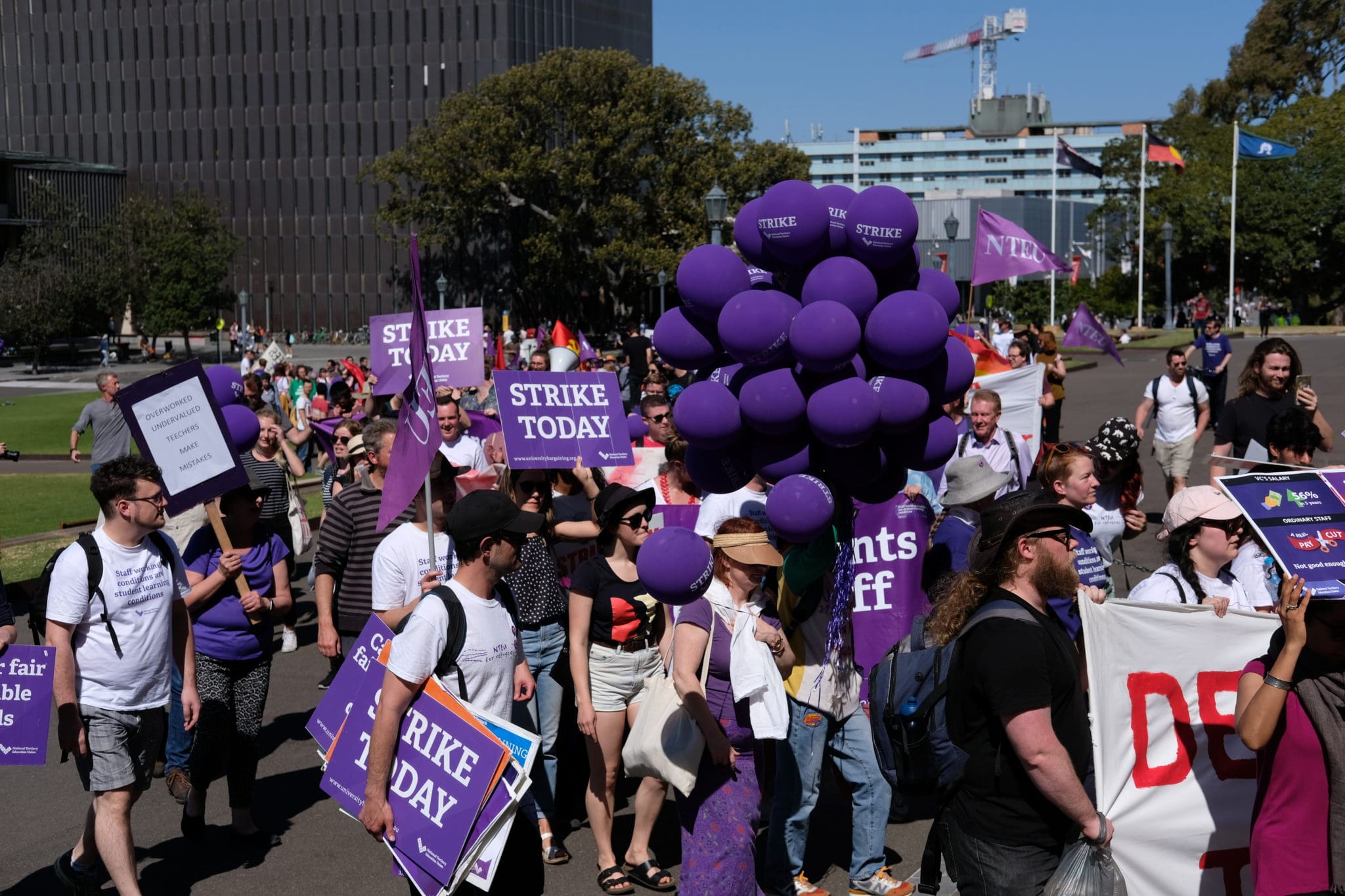On Wednesday 13 September, many students found their classes cancelled as academics and general staff participated in a strike organised by the National Tertiary Education Union (NTEU).
The strike, organised as part of the NTEU’s ongoing industrial action against the University’s proposed enterprise bargaining agreement (EBA), attracted widespread staff involvement, with staff and students forming picket lines at all major entrances to the University.
But it would be wrong to suggest that staff or student involvement was uniform across faculties or level of seniority.
An Honi survey of students revealed the arrangements made for over 60 classes — lectures, tutorials or labs — held on Wednesday, with the results suggesting some interesting implications about which staff were most involved in industrial action.
The faculty with the highest proportion of cancelled classes was the Faculty of Arts and Social Sciences; of the 30 classes on which Honi received responses, 26 had been cancelled.
What’s more, FASS was the only faculty in which the majority of lecturers and tutors who cancelled classes also explicitly encouraged their students to participate in the strike by not entering the University, or by joining staff at picket lines.
However, the strike also received substantial support from other faculties, with the Faculty of Science landing in second place. On average, laboratory demonstrators were more likely to cancel classes than tutors or lecturers from any faculty. One lab demonstrator clarified to her class, however, that whether labs were cancelled wasn’t necessarily a reflection of the views of individual demonstrators, since only a small number of specialised technical staff had to strike for labs to not meet the required health and safety regulations to continue.
Sydney Law School academics were among the least likely to strike, with a substantial majority of classes continuing on the day. This may be because Law School staff are more likely to have faith in the University, which has been represented by Sydney Law School Dean Joellen Riley in EBA negotiations since April.
The level of industrial action also varied by campus, with Professor Sharon Kilbreath, Deputy Dean (Academic) of the Faculty of Health Services, describing events as ‘business as usual’ at the University’s Cumberland Campus.
“It’s no secret that the NTEU has particular strengths in certain areas,” said Dr David Brophy, NTEU USyd branch committee member. “But as the campaign rolls on we’re making inroads into less well organised parts of the university.”
Of the students whose classes were cancelled, almost 95% had been given advance notice, rather than being informed of the cancellation on the day of strikes. This seems to suggest that the strikes were successful in expressing staff views, but did not result in many last minute cancellations for staff who had chosen to continue classes.
Brophy said that some academics who had been planning to go ahead with classes were convinced to strike after interacting with those picketing, but that the extended discussions about strike action meant that most academics “knew where they stood by the time of the strike”.
Brophy said he believes engagement will continue to increase as long as university management resists the NTEU’s demands.





